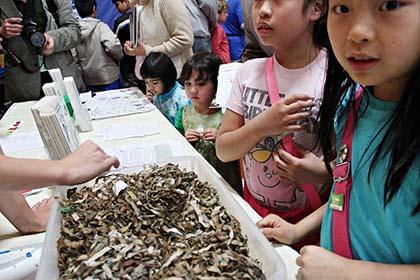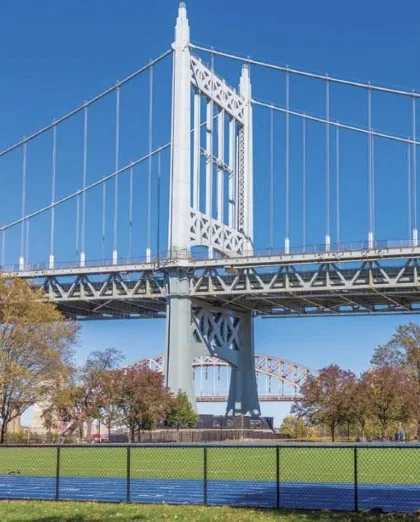By Joe Anuta
Many people think they lack the tools to fight climate change on an individual basis, but a Queens organization said all you need is a fork and a knife.
The Central Queens YM & YWHA in Forest Hills is getting in the spirit of Earth Day, which was April 22, by hosting the second-annual Green for Queens Earth Day Fair. The event will focus on the ways food choices can help fight climate change.
“I think environmental problems such as climate change are going to shape the future,” said Peggy Kurtz, spokeswoman for the Y. “I see the great task of our generation as confronting climate change and reversing its course.”
Kurtz said that she hopes the cooking demonstrations, samples from organic food merchants and activities for children will help Queens residents think about how the question “What do you want for dinner?” can affect the environment.
The main event will be a talk by Anna Lappé, author of the book “Diet for a Hot Planet.”
“Most Americans don’t think about the impact of our food on our environment,” Lappé said. “When people think about global warming, they think about what car they drive — not about their food choices.”
But up to a third of climate-warming emissions can be traced back to agriculture, she said. And there are some simple alterations in diet that can have a positive effect.
First, eat less beef.
Large cattle farms contribute more greenhouse gases to the atmosphere than any other food, she said.
“There are a lot of reasons why beef has a large carbon footprint,” she said.
One of the main reasons is that the animals are inefficient to produce.
If you compare the amount of resources it takes to put one pound of beef on a family’s dinner table as opposed to one pound of chicken or fish, the beef requires much more, Lappé said.
Diets that contains less beef and more chicken, fish and vegetables have a smaller carbon footprint, she said.
In fact, it takes the least amount of energy to produce vegetables.
“Choosing to eat more plants is one way to lower your personal carbon footprint,” she said.
It is also important to eat organic, Lappé said, since organic farmers do not use chemical fertilizers and pesticides.
Those fertilizers and pesticides are produced in a factory, and that factory uses energy.
But organic farmers use nature.
“Organic agriculture says, ‘Lets work with ecological systems to use natural forms of fertilizer,’” she said. “There are all kinds of other ways to build soil fertility naturally.”
But contrary to what many people believe, the “locavore” movement is not exactly about how far a food is shipped.
Only about 10 percent of a food’s carbon footprint comes from transportation. Most of the footprint comes from production.
“When we talk about eating ‘local,’ that means simplified food that is grown not only close, but grown in a way that is good for the environment.”
Many local farmers and crop sharing associations will be on hand May 15 for the fair.
In addition, residents can check out the latest in green cleaning products.
And for anyone who does not want to buy a roof-mounted windmill, Con Edison will be on hand to sell wind power.
Residents can bring their current ConEd bill, and representatives from the power company will ensure that any future electricity will come from wind farms, and not from traditionally powered generators.
The free event is from 1 p.m. to 4 p.m. at 67-09 108th St.
Reach reporter Joe Anuta by e-mail at januta@cnglocal.com or by phone at 718-260-4566.


































